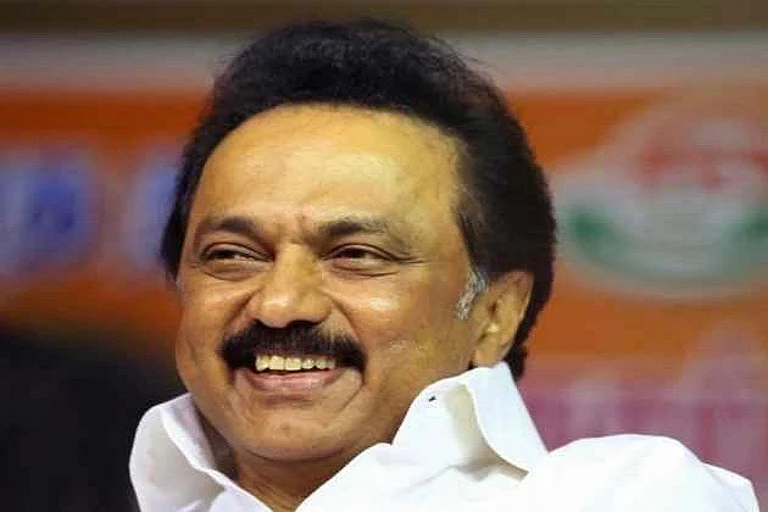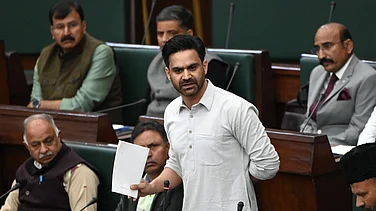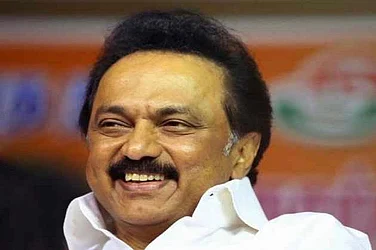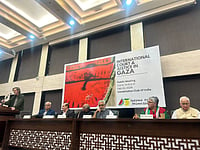With campaigning in its final leg, Rajasthan is gearing up tight for its 16th Assembly elections that will witness a neck-and-neck battle between the ruling Congress and the BJP. Among several issues that have been plaguing the state and have transformed into a key electoral factor, a major one is women's rights.
Women's rights often spread out to several other key issues in Rajasthan such as water, crime and lack of educational infrastructure that continue to push them behind.
While the BJP has focussed on the increase in atrocities against women under the Congress rule, the Congress is playing on its women-centric schemes. However, a ground visit to several key districts of the state only makes one realise how the large talks and schemes of anti-incumbent governments over the years have only been a mere tokenism of women’s rights. In a larger context, lack of basic resources interspersed with caste and community politics have always impacted a woman’s life and continue to do so, in a less positive way.
Water is primary to any development and its scarcity hampers various human needs and rights. Reports indicate worsening safe drinking water availability due to climate change, disproportionately affecting women and children. Rajasthan, constituting 5.5 per cent of India’s population, has only 1.1 per cent of the country’s water resources. Government data from the summer of 2022 reveals that out of 285 blocks, 203 were overexploiting groundwater, highlighting the critical water situation in the state.As an outcome of the water crisis, women’s lives which revolve around fetching water in the gendered spaces of the state are heavily impacted. “My entire youth passed by, collecting water. There were RO machines set here and there near our villages, but today they are all non-utilised and locked up due to lack of servicing over the years,” says Prameela, a 23-year-old mother from Ramsar, Barmer district that sees the most water crisis.Desperate cries for water begin before the break of dawn and continue till noon. Groups of women in and around villages, to date, walk for hours to fetch water. Being largely part of the household chores, women here, are most affected when it comes to water the crisis, taking up most of their time to advance in any other spheres of life.
Yet, Barmer has never had women's political representation and is largely dominated by community politics, voters expect that it would again be the incumbent Ameen Khan who would win the seat from here.While women's issues may serve as a significant talking point as elections near, the lack of women's representation in Rajasthan’s electoral space draws up a stark contrast to the ideology preached. For the upcoming elections, the BJP has fielded only 20 women candidates making it a mere 10 per cent of the 200 assembly seats in Rajasthan. On the other hand, the Congress has fielded eight more, 28 women candidates, who comprise only 14 per cent of its total candidates. The figures lie far away from the much-talked-about promise of 33 per cent reservation for women in the Lok Sabha and state assemblies. This would have required the political parties to field women candidates in at least 66 constituencies out of the 200.Further, when it comes to the issue of atrocities against women, we look at the latest NCRB data that placed the state with the highest number of rapes in 2021 and the second-highest number of overall crimes against women. The NCRB report showed that Rajasthan ranked second after Uttar Pradesh in overall crimes against women in 2021 and reported the highest number of rape cases in the country at 6,337. This marked an annual increase of 19.34 per cent as 5,310 cases were reported in 2020.While the BJP leaves no stone unturned to attack the ruling Congress government over the high crime against women, the Congress in its defence maintains that the high number is a result of the state’s policy of registering all complaints as FIRs.In Malviya Nagar, Congress MLA candidate Archana Sharma disputes claims of rising crimes against women, attributing increased reports to better reporting of such instances to the police. Speaking to Outlook, she says, “Rising crime against women is a misconception here. In Rajasthan, the numbers are visibly higher because we ensure that the police register each and every complaint and take action accordingly. So we are ensuring justice is being served.”


























